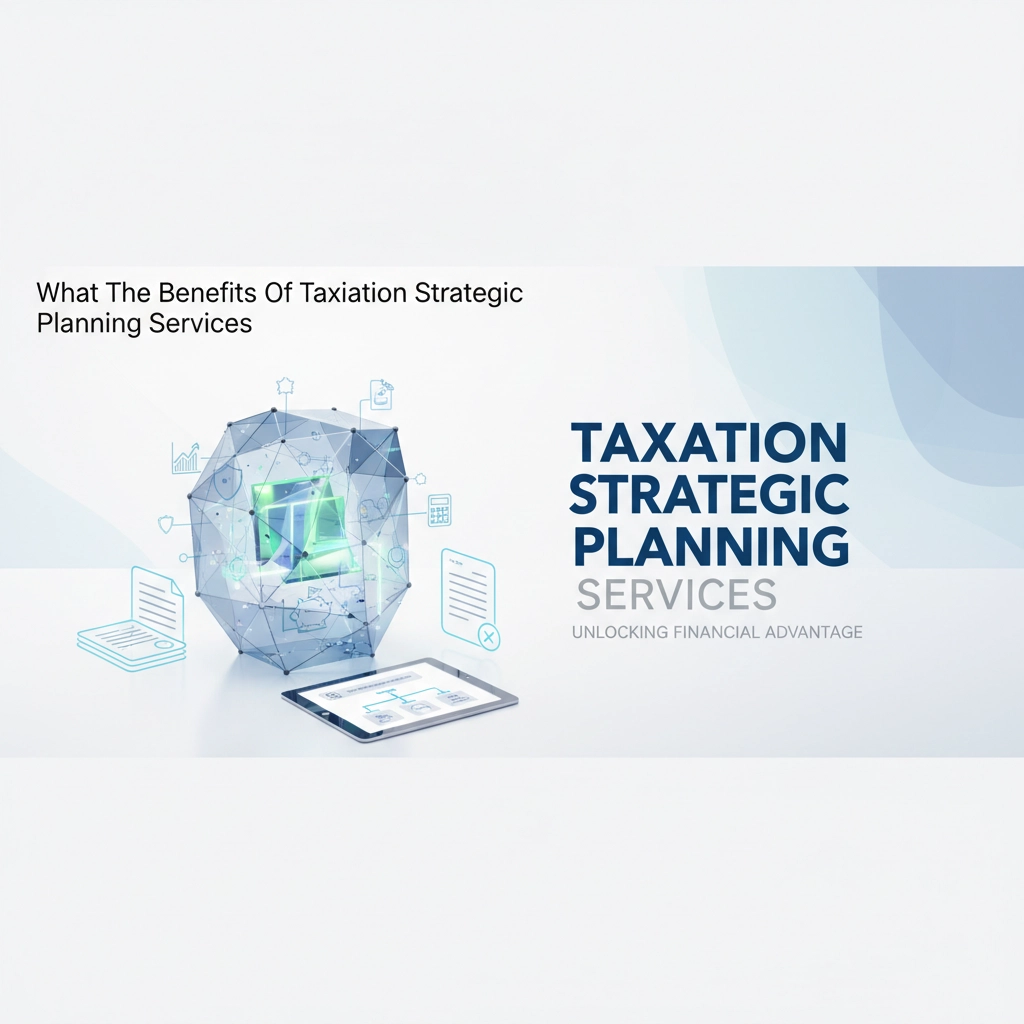
Tax season doesn't have to be a stressful scramble through receipts and last-minute calculations. Strategic tax planning services transform how businesses approach their tax obligations, turning what's often seen as a necessary evil into a powerful tool for growth and financial optimization.
If you're a business owner who thinks tax planning is just about filing returns on time, you're missing out on significant opportunities to keep more money in your business and fuel your growth ambitions.
Strategic tax planning goes far beyond basic tax compliance. While traditional tax preparation focuses on looking backward at what happened last year, strategic planning looks forward. It's about making informed financial decisions throughout the year that legally minimize your tax burden while supporting your business goals.
Think of it this way: basic tax prep is like getting a physical exam after you're already sick, while strategic tax planning is like maintaining a healthy lifestyle to prevent illness in the first place.

The most obvious benefit of strategic tax planning is keeping more money in your pocket – legally. Professional tax strategists know the tax code inside and out, including deductions and credits you might never discover on your own.
For example, many small business owners miss out on the Research and Development tax credit, which can apply to activities as simple as developing new processes or improving existing products. A restaurant that experiments with new recipes could qualify. A manufacturer that tweaks their production line might be eligible. These aren't just for tech companies.
Strategic planning also helps you time your income and expenses strategically. If you're expecting a great year, you might accelerate some deductible expenses into the current tax year. If you're having a slower year, you might delay invoicing some clients until January to spread income across tax years more favorably.
The key is having a plan rather than scrambling at year-end when your options are limited.
Nobody likes unpleasant surprises, especially when they come with dollar signs attached. Strategic tax planning helps you avoid the shock of unexpected tax bills that can throw your cash flow into chaos.
Consider this scenario: Your business has a great year, and you're excited about the profits. Then April rolls around, and you discover you owe $30,000 in taxes that you hadn't budgeted for. Suddenly, that successful year feels like a financial disaster.
With strategic planning, you'll know your approximate tax obligation throughout the year. This means you can make quarterly estimated payments, set aside the right amount in a separate account, and avoid both penalties and cash flow crunches.

Tax laws change frequently, and keeping up with all the modifications can feel impossible for busy business owners. Strategic tax planning services ensure you stay compliant with current regulations while taking advantage of new opportunities.
Professional tax strategists monitor changes in tax law and proactively adjust your strategy. When the Tax Cuts and Jobs Act passed in 2017, for instance, it created new opportunities like the Section 199A deduction for pass-through entities, but it also eliminated some previously valuable deductions.
Businesses working with strategic tax planners were positioned to take advantage of the new benefits while avoiding pitfalls that caught others off guard. They also help ensure proper documentation and record-keeping, which becomes crucial if you're ever audited.
Strategic tax planning isn't just about minimizing this year's tax bill – it's about positioning your business for long-term success. Different business structures have different tax implications, and what works when you're a solo entrepreneur might not be optimal when you have employees and substantial revenue.
For example, a freelance consultant operating as a sole proprietor might benefit from forming an S-Corporation once their income reaches a certain level. This change could save thousands in self-employment taxes while providing other benefits like more favorable treatment of health insurance premiums.
Strategic planners help you understand these transition points and plan for them in advance. They can model different scenarios and show you exactly how various business decisions will impact your tax situation.

Cash flow is the lifeblood of any business, and taxes represent one of your largest expenses. Strategic tax planning helps you manage this expense more effectively by spreading it out and making it predictable.
Instead of facing one large tax payment in April, strategic planning often involves quarterly estimated payments that match your income patterns. This approach helps smooth out your cash flow throughout the year and prevents the need for emergency loans or credit lines to cover tax obligations.
Additionally, strategic planners can help you time certain transactions to optimize cash flow. They might recommend accelerating some income into the current year if you expect to be in a higher tax bracket next year, or deferring income if you anticipate lower rates in the future.
Every significant business decision has tax implications, but many business owners don't realize this until after the fact. Strategic tax planning services provide guidance on the tax consequences of major decisions before you make them.
Thinking about buying that new piece of equipment? Your tax planner can show you whether it makes more sense to purchase it outright, lease it, or finance it based on current tax benefits like bonus depreciation or Section 179 deductions.
Considering hiring your spouse or children in the business? There are specific tax advantages to legitimate family employment, but also rules you must follow to maintain those benefits.
Planning to sell your business someday? Strategic tax planning can help structure your business and the eventual sale to minimize capital gains taxes and maximize your after-tax proceeds.
Tax law is incredibly complex, and it extends far beyond what most business owners can reasonably be expected to understand. Strategic tax planning services give you access to specialized knowledge that would take years to develop on your own.
This includes understanding industry-specific tax benefits, keeping up with changing regulations, knowing how to properly document deductions, and understanding the interplay between federal, state, and local tax obligations.
Professional tax strategists also maintain relationships with other financial professionals, creating a network of expertise that can benefit your business. They often work closely with financial advisors, estate planning attorneys, and business consultants to ensure all aspects of your financial strategy work together harmoniously.
Strategic tax planning services offer a significant return on investment for most businesses. The money saved through legal tax reduction strategies, combined with the peace of mind that comes from proper compliance and planning, typically far exceeds the cost of professional services.
More importantly, strategic tax planning frees up your time and mental energy to focus on what you do best – running and growing your business. Instead of worrying about tax implications or scrambling to gather documents at year-end, you can concentrate on serving customers and building your company.
The best time to start strategic tax planning is now, regardless of where you are in the tax year. Every month you wait is a month of potential savings and optimization you're missing out on. Your future self – and your bank account – will thank you for taking action today.